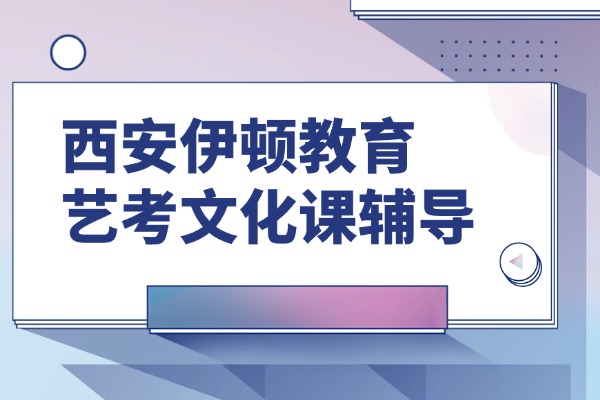【高考英语语法】不定式符号的单独使用
【高考英语语法】不定式符号的单独使用!我们已经开始动词不定式的学习,今天学习关于不定式符号的几个问题之不定式符号的单独使用。欢迎大家和伊顿教育辅导老师一起学习!

不定式符号的单独使用
为了避免重复上文中出现过的动词,可以用不定式符号to来代替上文中出现过的不定式结构。
1.在助动词或情态动词之后,如be going to, used to, have to, ought to, be able to, be about to等。
She must go but you don't have to. 她需要走,但你没有需要。
---Do you think I ought to go to see my doctor 你认为我应该去看医生吗?
---Yes, I think you ought to. 是的,我想你应该去。
2.在want, decide, like, love, hope, wish, mean, refuse, try等动词之后。
You may go with them if you hope to. 如果你希望的话,你可以和他们一起去。
---Did you go to see the Great Wall 你游览长城了吗?
---I wanted to, but I was too busy. 我本来想去的,但我太忙了。
3.在做宾语补足语的ask, tell, order, advise, persuade, warn, wish, permit, allow, forbid等动词之后。
Don't do anything unless your father tells you to. 除非你父亲叫你去做,不然不要做事情。
---May I use your car 我可以用你的汽车吗?
---No, I forbid you to. 不,我禁止你使用。
4.在对话的答语中的happy, glad, eager, anxious, willing, ready, pleased, afraid等形容词之后。
---Will you lend me a hand 你能帮我一个忙吗?
---I'm willing to, but I can't now. 我很愿意,但现在不行。
---Would you please come to my birthday party tomorrow明天下午来参加我的生日聚会好吗?
---I'll be glad to.我很乐意。
提示:
如果动词不定式是to be或to have,则一般不省。
--- Did you finish the work你的工作完成了吗?
--- No, but I hoped to have.没有,但我希望已经完成了。
- 热门课程
- 热门资讯
- 热门资料
- 热门福利
-
 西安伊顿教育有艺考文化课辅导吗?艺考生文化课复习全攻略艺考结束后,很多艺考生文化课基础薄弱、知识点落下太多,复习时间紧张,抓不住得分重点,自学也没有清晰思路,成绩提升慢,家长也跟着焦虑。不少西安的艺考生和家长都想知道,西安伊顿教育有没有艺考文化课辅导,也急需一份实用的艺考生文化课复习全攻略。接下来小编就为大家详细解答吧! 西安伊顿教育有艺考文化课
西安伊顿教育有艺考文化课辅导吗?艺考生文化课复习全攻略艺考结束后,很多艺考生文化课基础薄弱、知识点落下太多,复习时间紧张,抓不住得分重点,自学也没有清晰思路,成绩提升慢,家长也跟着焦虑。不少西安的艺考生和家长都想知道,西安伊顿教育有没有艺考文化课辅导,也急需一份实用的艺考生文化课复习全攻略。接下来小编就为大家详细解答吧! 西安伊顿教育有艺考文化课 -
 西安伊顿高考全日制课程怎么样?高考冲刺技巧高考冲刺阶段,很多学生复习没规划,抓不住考试重点,基础不扎实、偏科问题明显,自学效率低,做题没方法,成绩迟迟提不上去,家长也跟着着急。不少西安的高三学生和家长都想了解,西安伊顿高考全日制课程到底怎么样,今天小编就给大家来分享一下,以及高考冲刺的几个技巧,供大家参考! 西安伊顿高考全日制课程怎么
西安伊顿高考全日制课程怎么样?高考冲刺技巧高考冲刺阶段,很多学生复习没规划,抓不住考试重点,基础不扎实、偏科问题明显,自学效率低,做题没方法,成绩迟迟提不上去,家长也跟着着急。不少西安的高三学生和家长都想了解,西安伊顿高考全日制课程到底怎么样,今天小编就给大家来分享一下,以及高考冲刺的几个技巧,供大家参考! 西安伊顿高考全日制课程怎么 -
 西安十大中高考补习学校!中高考临近,很多孩子基础薄弱、复习没方向,成绩迟迟提不上来,家长想给孩子选靠谱的补习学校,却面对众多机构无从下手,还担心师资一般、管理松散、提分没效果。不少西安家长都迫切想知道,本地口碑好、实力强的中高考补习学校有哪些。今天就整理出西安十大中高考补习学校,帮大家清晰对比,选对机构助力孩子高效备考
西安十大中高考补习学校!中高考临近,很多孩子基础薄弱、复习没方向,成绩迟迟提不上来,家长想给孩子选靠谱的补习学校,却面对众多机构无从下手,还担心师资一般、管理松散、提分没效果。不少西安家长都迫切想知道,本地口碑好、实力强的中高考补习学校有哪些。今天就整理出西安十大中高考补习学校,帮大家清晰对比,选对机构助力孩子高效备考 -
 西安秦学伊顿高三全日制怎么样?高考复习重点关注高三复习时间紧、任务重,很多学生抓不住高考复习重点,基础薄弱、偏科问题突出,复习没规划,学习效率也上不去。不少西安的家长和学生都想知道,西安秦学伊顿高三全日制到底怎么样,也不清楚高考复习该重点关注哪些内容。那么,接下来小编就给大家来一起分享一下吧! 西安秦学伊顿高三全日制怎么样? 西安秦学伊
西安秦学伊顿高三全日制怎么样?高考复习重点关注高三复习时间紧、任务重,很多学生抓不住高考复习重点,基础薄弱、偏科问题突出,复习没规划,学习效率也上不去。不少西安的家长和学生都想知道,西安秦学伊顿高三全日制到底怎么样,也不清楚高考复习该重点关注哪些内容。那么,接下来小编就给大家来一起分享一下吧! 西安秦学伊顿高三全日制怎么样? 西安秦学伊
-
 2023高考作文热点素材 ,《盛唐密盒》作文范文2023高考作文热点素材 ,《盛唐密盒》作文范文!最近有两个“人物”风靡全网。他们谈吐不凡,一位叫“房玄龄”,另一位叫“杜如晦”。这是继“不倒翁小姐姐”后,西安文旅打造的又一爆款节目《盛唐密盒》。为方便各位学生搜集素材,小编老师为大家整理了有关《盛唐密盒》作文范文,各位学生了解一下! 题目
2023高考作文热点素材 ,《盛唐密盒》作文范文2023高考作文热点素材 ,《盛唐密盒》作文范文!最近有两个“人物”风靡全网。他们谈吐不凡,一位叫“房玄龄”,另一位叫“杜如晦”。这是继“不倒翁小姐姐”后,西安文旅打造的又一爆款节目《盛唐密盒》。为方便各位学生搜集素材,小编老师为大家整理了有关《盛唐密盒》作文范文,各位学生了解一下! 题目 -
 高考作文素材,《隐入尘烟》金句、时评、作文题《隐入尘烟》豆瓣评分8.5分,今年国产片中最高分,年内应该很难有出其右者。影片讲述了在西北农村,一对底层夫妇艰辛而温馨的生命旅程,他们用简单的相守和朴拙的告白,印证彼此的心意,演绎别样的浪漫与温情。下面小编老师为大家整理了《隐入尘烟》金句、时评、作文题,大家参考一下! 作文标题 如果你写一篇
高考作文素材,《隐入尘烟》金句、时评、作文题《隐入尘烟》豆瓣评分8.5分,今年国产片中最高分,年内应该很难有出其右者。影片讲述了在西北农村,一对底层夫妇艰辛而温馨的生命旅程,他们用简单的相守和朴拙的告白,印证彼此的心意,演绎别样的浪漫与温情。下面小编老师为大家整理了《隐入尘烟》金句、时评、作文题,大家参考一下! 作文标题 如果你写一篇 -
 初中学生和高中学生学习有什么差异?各位学生现在很快就要到九月,又会有一大批的学生将要步入高中。最近不少的学生问老师,初中学生和高中学生学习有什么差异?初中的学习不管是在学习方法还是在思维方式上都有差别。为方便各位学生能够更好的融入高中学习,小编老师为大家整理了初中学生和高中学生学习的相关差异,大家了解一下! 初中学生和高中学生
初中学生和高中学生学习有什么差异?各位学生现在很快就要到九月,又会有一大批的学生将要步入高中。最近不少的学生问老师,初中学生和高中学生学习有什么差异?初中的学习不管是在学习方法还是在思维方式上都有差别。为方便各位学生能够更好的融入高中学习,小编老师为大家整理了初中学生和高中学生学习的相关差异,大家了解一下! 初中学生和高中学生 -
 高中数学为什么比较难?各位学生在高中学习的这几门课程中大家觉得哪一科比较难呢?很多学生都反应数学比较难学,想知道高中数学难在哪里。为方便各位学生了解,小编老师为大家整理了有关新高考数学的相关信息,大家可以了解一下!更多有关学习方面的问题大家也可以咨询在线老师! 高中数学为什么比较难? 初中数学知识少、浅、难度容易
高中数学为什么比较难?各位学生在高中学习的这几门课程中大家觉得哪一科比较难呢?很多学生都反应数学比较难学,想知道高中数学难在哪里。为方便各位学生了解,小编老师为大家整理了有关新高考数学的相关信息,大家可以了解一下!更多有关学习方面的问题大家也可以咨询在线老师! 高中数学为什么比较难? 初中数学知识少、浅、难度容易


















 All right reserved
All right reserved
